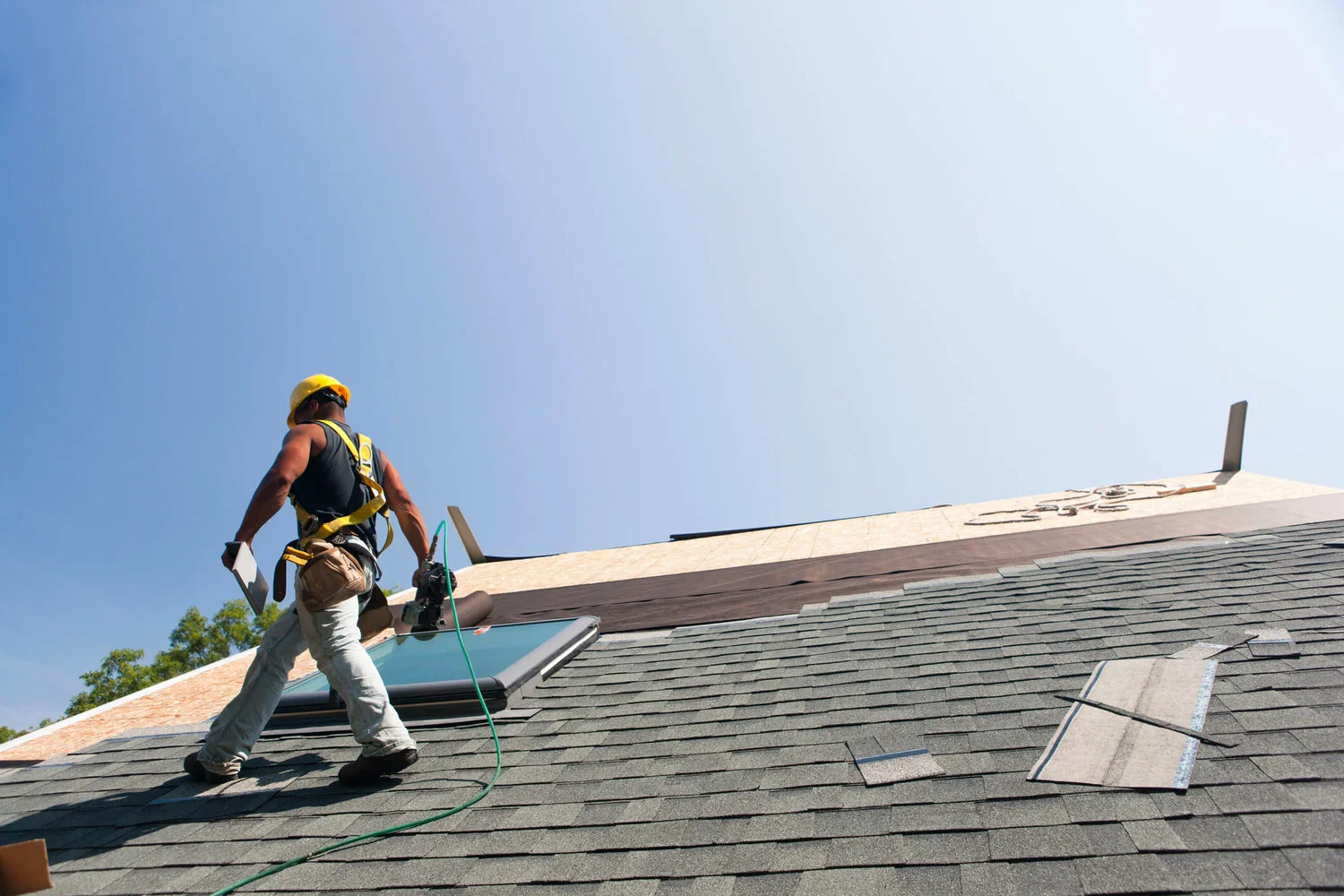A high-quality roof is one of the most critical components of a safe and comfortable home. Whether you are building a new house or replacing an old, worn-out roof, professional roofing installation ensures durability, energy efficiency, and aesthetic appeal. A well-installed roof not only enhances the beauty of your home but also protects it from harsh weather conditions. In this guide, we’ll cover the importance of quality roof installation, types of roofing materials, and how to choose the best roofing installation contractor for your project.
Why Quality Roofing Installation Matters
Investing in professional roofing installation services offers several advantages:
1. Protection from Weather Elements
A properly installed roof shields your home from rain, wind, snow, and extreme temperatures. A poorly installed roof, however, can lead to leaks, mold growth, and structural damage.
2. Enhanced Energy Efficiency
A high-quality roof contributes to better insulation, reducing energy costs by keeping your home warmer in winter and cooler in summer.
3. Increased Home Value
A well-maintained roof boosts your home’s curb appeal and market value, making it an attractive investment for potential buyers.
4. Longevity and Durability
Professional installation ensures your roof lasts longer, reducing the need for frequent repairs and replacements.
Choosing the Right Roofing Material
Selecting the right roofing material is essential for durability and aesthetic appeal. Here are some common roofing materials used in residential roofing installation and commercial roofing installation:
1. Asphalt Shingles
- Affordable and widely used in residential properties
- Available in various colors and styles
- Lifespan: 20-30 years
2. Metal Roofing
- Durable and energy-efficient
- Resistant to fire, wind, and hail
- Lifespan: 40-70 years
3. Tile Roofing
- Provides a unique and elegant look
- Resistant to fire and insects
- Lifespan: 50+ years
4. Slate Roofing
- Highly durable and long-lasting
- Requires professional installation due to its weight
- Lifespan: 75-100 years
5. Flat Roofing (TPO, EPDM, PVC)
- Commonly used in commercial roofing installation
- Energy-efficient and cost-effective
- Lifespan: 20-30 years
Steps Involved in Roofing Installation
A professional roofing installation contractor follows a systematic process to ensure a successful installation. Here’s what you can expect:
1. Roof Inspection and Planning
- A thorough inspection of the existing roof structure
- Identifying damages, leaks, and potential weak spots
- Choosing the right roofing material based on climate and budget
2. Roof Preparation
- Removing old roofing materials (if applicable)
- Repairing any damaged structures or decking
- Installing underlayment for extra protection
3. Roofing Installation
- Placing and securing shingles, metal panels, or tiles
- Ensuring proper ventilation and insulation
- Sealing edges and valleys to prevent water leaks
4. Final Inspection and Cleanup
- Checking for proper installation and alignment
- Removing debris and leftover materials
- Ensuring customer satisfaction
Hiring the Best Roofing Installation Contractor
Finding a reliable roofing installation contractor is crucial for quality workmanship. Here’s how to choose the best professional for your roofing project:
1. Look for Experience and Expertise
Choose a contractor with extensive experience in roofing installation services. Experienced professionals can handle various roofing materials and installation techniques.
2. Check Licensing and Insurance
A reputable contractor should be licensed and insured to protect you from potential liabilities in case of accidents or property damage.
3. Read Customer Reviews and Testimonials
Check online reviews, ratings, and testimonials to gauge the contractor’s reputation and reliability.
4. Get Multiple Quotes
Compare quotes from different roofing installation contractors to ensure you get the best value for your investment.
5. Ask About Warranties
A good contractor should offer warranties on materials and labor to guarantee long-term performance.
Residential Roofing Installation vs. Commercial Roofing Installation
Residential Roofing Installation
- Focuses on homes and small buildings
- Common materials: asphalt shingles, metal, tile
- Aesthetic appeal is a key consideration
Commercial Roofing Installation
- Used for businesses, warehouses, and industrial properties
- Common materials: TPO, EPDM, metal
- Emphasizes durability and energy efficiency
Roofing Maintenance Tips to Extend Longevity
In order to get the most out of your roofing’s lifespan, regular maintenance is essential. Here are some tips:
1. Regular Inspections
Schedule annual roof inspections to identify and address minor issues before they become major problems.
2. Clean Gutters and Downspouts
Clogged gutters can cause water damage, so keep them free from debris.
3. Trim Overhanging Branches
Branches can damage roofing materials and promote moss growth.
4. Address Leaks Immediately
If you notice leaks or water stains, contact a roofing installation contractor for repairs before the damage worsens.
5. Ensure Proper Ventilation
Good ventilation prevents moisture buildup, reducing the risk of mold and rot.
Conclusion
Upgrading your home with professional roofing installation improves safety, energy efficiency, and curb appeal. Whether you need residential roofing installation for your home or commercial roofing installation for your business, hiring a reputable roofing installation contractor ensures quality results.
When searching for roofing installation near me, look for experienced professionals with good reviews, proper licensing, and warranty options. Investing in high-quality roofing installation services today will save you money in the long run by reducing repair costs and increasing your home’s value.

